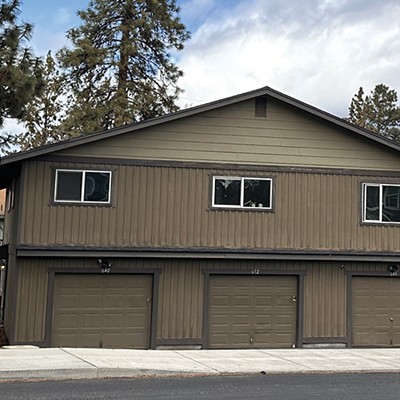OPINION
It is beginning to become clear, as the bean counters set their pencils to an evaluation of the tax plans that are currently moving through Congress, that these changes will hurt the majority of Americans. The plan is being rushed through with an arbitrary "before Christmas" deadline to score a year end legislative "win," and the entire process is resulting a troubling outcome for Oregonians.
The bill's superficial process, the ramifications of the bills effect on the neediest Oregonians, as well as the addition to the nation's growing debt begs the question of how long our district can support the politicians backing this sort of political process. If we thought that Congressman Greg Walden had our back, the tax plan is a good example of where politics is literally trumping the district's interests. Some of Walden's statements, on the surface, appear to support the struggling people in his district. He continually champions the need to increase economic opportunities—especially in rural parts of Oregon.
There's no doubt that some people in rural areas suffer from a lack of opportunity, but they need real support services.It is beginning to become clear, as the bean counters set their pencils to an evaluation of the tax plans that are currently moving through Congress, that these changes will hurt the majority of Americans. The plan is being rushed through with an arbitrary "before Christmas" deadline to score a year end legislative "win," and the entire process is resulting a troubling outcome for Oregonians. The bill's superficial process, the ramifications of the bills effect on the neediest Oregonians, as well as the addition to the nation's growing debt begs the question of how long our district can support the politicians backing this sort of political process.
If we thought that Congressman Greg Walden had our back, the tax plan is a good example of where politics is literally trumping the district's interests. Some of Walden's statements, on the surface, appear to support the struggling people in his district. He continually champions the need to increase economic opportunities—especially in rural parts of Oregon. There's no doubt that some people in rural areas suffer from a lack of opportunity, but they need real support services.
The unemployment rate in Harney County—with one of the highest rates of unemployment in the state—was 4.9 percent in September, slightly higher than the state's overall unemployment rate of 4.2 percent. (Oregon's overall unemployment rate was at a historic low of 4 percent in March.) But delve below the surface and it's apparent that much of Walden's rhetoric about caring for struggling people is going to end up being sacrificed to move the current tax plan through the House.
Invariably, what will follow a dismal budget projection like the current one is the subsequent, post-tax-bill budget-cutting. Through the proposed increase to the Child Tax Credit, and through a proposed increase in the standard deduction, as they appear in the current iteration of the House bill, Walden attempts to appeal to the working families he claims to support.
But not so fast.
Republicans in Congress are already hinting at how they'll pay for the tax plan, which, at this stage, promises to add billions to the deficit, as we covered in this week's tax plan story. The most likely target for cuts is to "entitlement programs," which historically have meant cuts to Medicare, Social Security, and in this iteration, perhaps even the SNAP program. These programs are a lifeline to people in depressed communities, where so far, more rural jobs have yet to materialize. Republicans have done this before.
In 2001 and 2003, President George W. Bush's administration attempted to cut Social Security and Medicare, just after passing tax cuts. Also added to the proposed tax bills: drilling in the Arctic National Wildlife Refuge, and a move to put tip money into the hands of restaurant owners, instead of going directly to the service worker who earned them. Both plans which emphasize catering to folks further up the economic food chain. These tax bills have numerous negative implications for those with the least in Oregon.
If the tax plan remains unchanged and District 2 is saddled with cuts to its fragile support structure it will be time for change in the next election cycle. While it won't undo the damage working its way through Congress right now it just might stick a finger in the dike of inequality that is spilling out in Congress. Since the House and Senate have yet to marry their tax bills as of this writing, a call into Walden's office would be a good item of holiday cheer. But, don't miss out on voting in the May primary in the race for Oregon's 2nd Congressional District, and keep an eye on the ramifications of passing this tax bill. It is beginning to become clear, as the bean counters set their pencils to an evaluation of the tax plans that are currently moving through Congress, that these changes will hurt the majority of Americans.
The plan is being rushed through with an arbitrary "before Christmas" deadline to score a year end legislative "win," and the entire process is resulting a troubling outcome for Oregonians. The bill's superficial process, the ramifications of the bills effect on the neediest Oregonians, as well as the addition to the nation's growing debt begs the question of how long our district can support the politicians backing this sort of political process.
If we thought that Congressman Greg Walden had our back, the tax plan is a good example of where politics is literally trumping the district's interests. Some of Walden's statements, on the surface, appear to support the struggling people in his district. He continually champions the need to increase economic opportunities—especially in rural parts of Oregon. There's no doubt that some people in rural areas suffer from a lack of opportunity, but they need real support services.





















